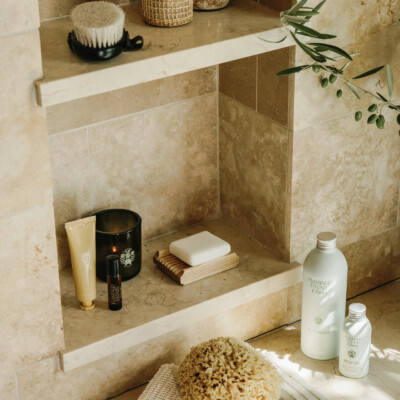For the past few New Years, instead of making resolutions, I’ve been setting intentions for different areas of my life. Not quite goals, these are more like gentle reminders to myself about how I want to show up—in work, relationships, health, and beyond. This year, under the “relationship” category, I wrote: Ask better questions, and practice deeper listening. Because when it comes to learning how to keep a conversation going, it’s not always as intuitive as it seems.
I realized that truly connecting with the people I love means creating conversations where they feel valued, heard, and cared for. And to do that, we have to be present, ask good questions, and listen—really listen.
So if you’ve ever found yourself scrambling to fill an awkward silence or wishing you’d asked a more meaningful follow-up, this guide is for you. Let’s dive in.

A Practical Guide: How to Keep a Conversation Going
1. Start by Actually Listening
We’ve all experienced that moment when you’re mid-story and realize the other person isn’t really listening. Or maybe you’ve been that person—distracted, your mind racing ahead.
The secret to keeping a conversation flowing naturally? Listen first.
When you truly tune in, you’ll naturally pick up on details worth exploring. The conversation stops feeling like a performance and starts feeling like a connection.
2. Ask More Questions
Research from Harvard Business Review confirms what many of us have felt after a one-sided conversation, “I wish they had asked me more questions.”
The good news is, you don’t have to be a seasoned interviewer to be a great conversationalist. Just start by asking more. The act of being curious opens doors to unexpected stories, shared memories, and meaningful connections. Thoughtful, open-ended questions are key!
A few ideas to get you started:
- Tell me how you ended up living in [their city]. What do you love about it?
- Is there a hobby you picked up during the pandemic that stuck?
- What’s the best vacation you’ve ever taken, and why?
- Who was your first celebrity crush? Do you think they influenced your type?
- What was the first book you remember loving? Is it still a favorite?
Read more: 104 Great Conversation Starters For Every Situation
3. Lean Into Follow-Up Questions
If you want to know how to keep a conversation going effortlessly, this is your magic move.
Follow-up questions show you’re truly engaged—and they open the door for deeper, more meaningful answers. It’s a simple way to turn a casual chat into something special.
Try these:
- What makes you say that?
- How did that make you feel?
- What exactly do you mean by that?
Even young kids notice when you ask thoughtful follow-ups. I’ve seen it in my own relationship with Henry—when I ask him to elaborate, he knows I care. And it’s no different with adults.
Bonus: Here’s how to upgrade everyday questions into connection-builders:
- How was your day? ? What was the best part?
- How’s your mom? ? What’s been keeping her busy lately?
- Can you help me understand that a little better?
- What motivated you to do/say that?
- How does that show up in your day-to-day life?
4. Ask Open-Ended Questions
Closed-ended questions that can be answered with a quick “yes” or “no” tend to stop conversations in their tracks. Open-ended questions, on the other hand, invite people to reflect, share stories, and get a little vulnerable.
When I’m interviewing Tastemakers or Wake Up Call guests, the best conversations happen when I ask questions that let people open up in unexpected ways.
A few to have in your back pocket:
- What’s your favorite thing that’s happened since we last caught up?
- What are your thoughts on [a recent event, book, or film]?
- What’s a memorable chance encounter you’ve had?
- Tell me about your last great meal—what made it so special?
5. Resist the Urge to Interrupt
Okay, guilty. I tend to get so excited when I relate to what someone’s saying that I jump in before they’re finished. But interrupting can unintentionally steer the conversation away from where it was headed, or make the other person feel rushed.
One of the best ways to improve your conversations is to get comfortable with a little silence. Let people finish their thoughts. Pause before responding. As the saying goes, “Seek to understand more than to be understood.”
The Power of Good Questions
If you need more proof of how transformative this can be, read the Modern Love essay on how mutual vulnerability builds closeness. The authors share that one key pattern in deep relationships is “sustained, escalating, reciprocal, personal self-disclosure.”
The famous 36 Questions study, which fostered intimacy between strangers, is proof that thoughtful questions can unlock connection in a matter of minutes.
Final Thoughts
The best conversations aren’t perfectly scripted. They’re built on genuine curiosity, presence, and a willingness to go a little deeper.
By listening well, asking more (and better) questions, and leaning into those open-ended moments, you’ll naturally learn how to keep a conversation going—whether you’re on a date, catching up with a friend, or making small talk at an event.
Your turn: What’s your favorite question to ask someone who you’re getting to know better? I’d love to hear.
This post was last updated on April 22, 2025 to include new insights.






